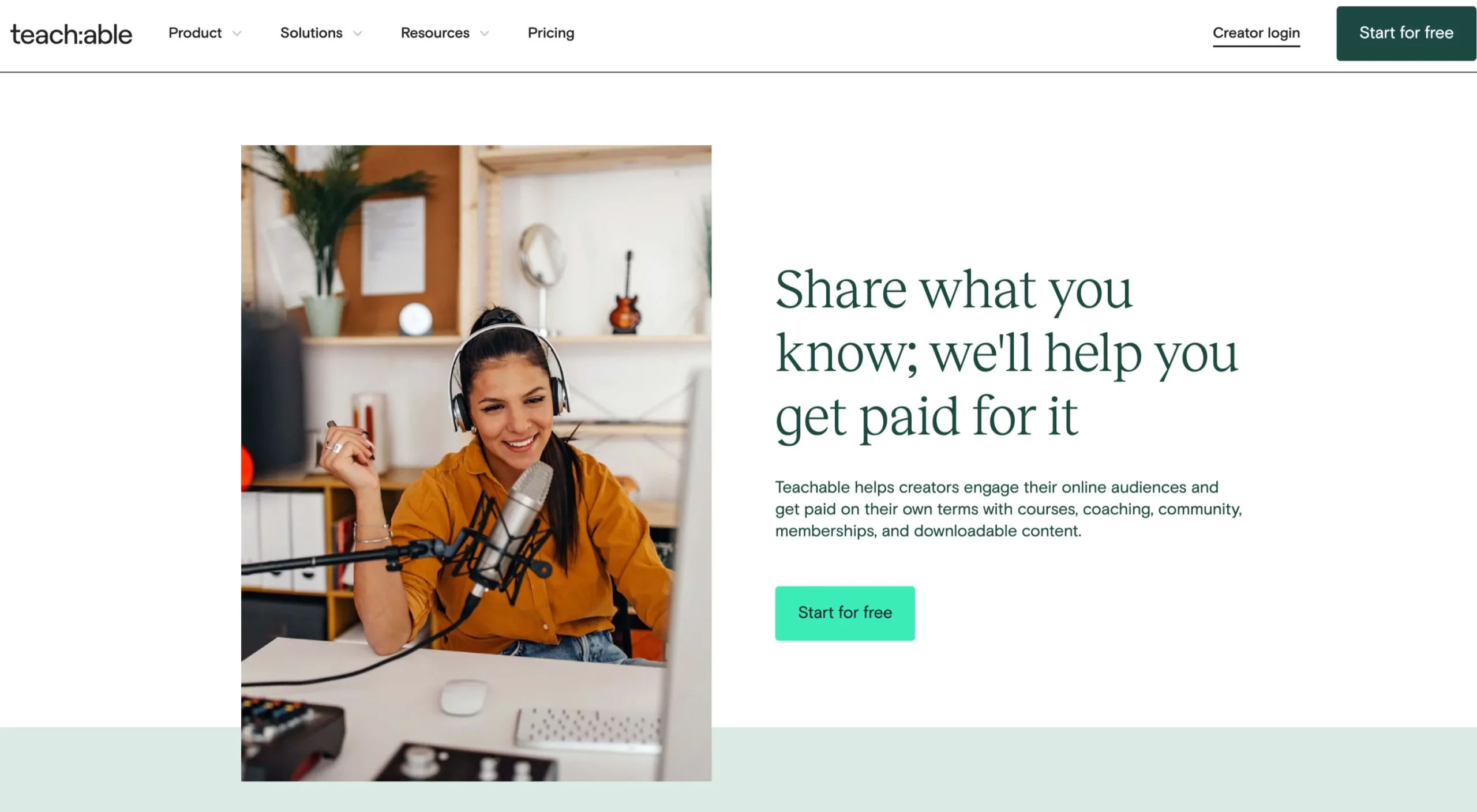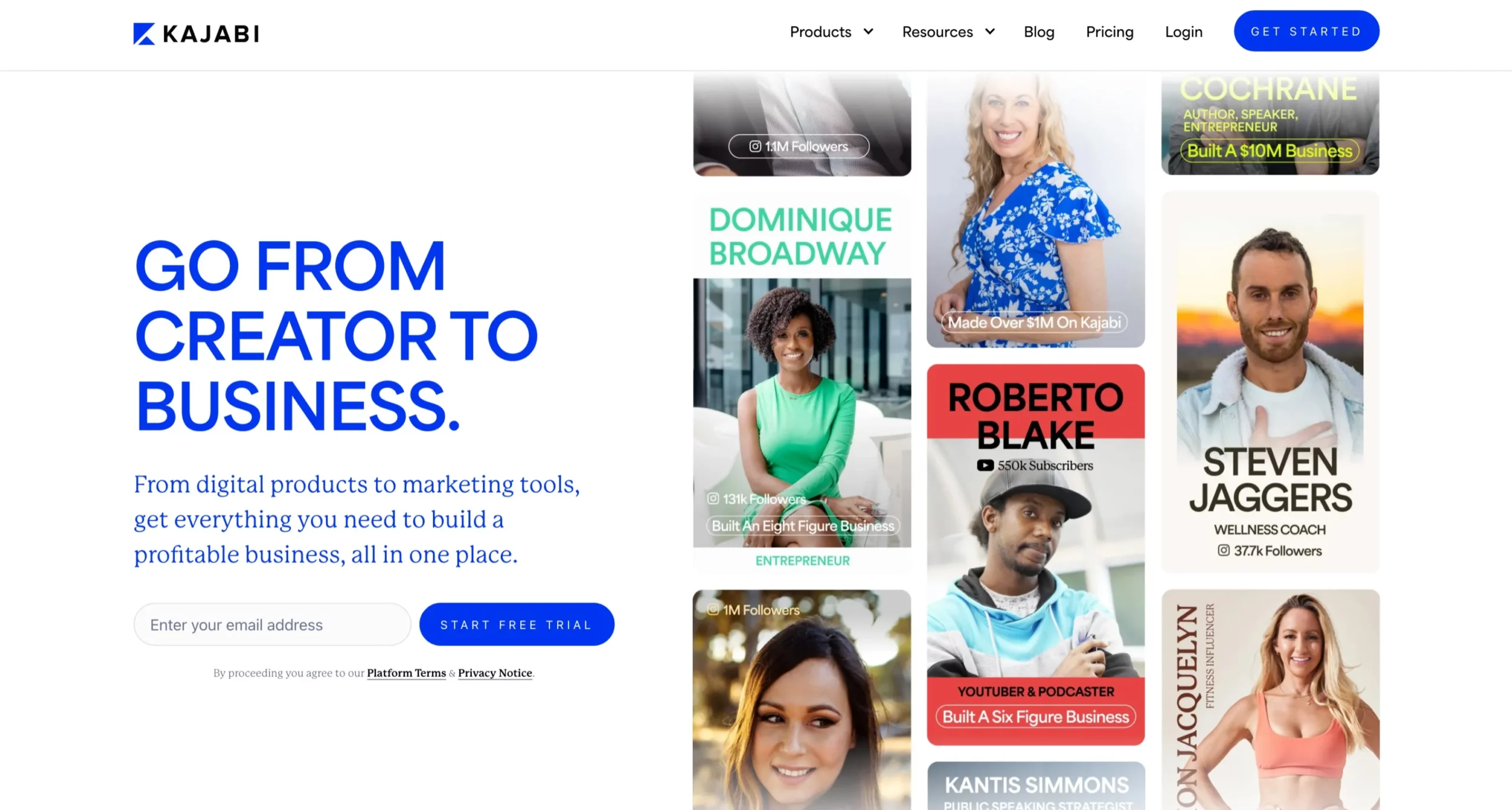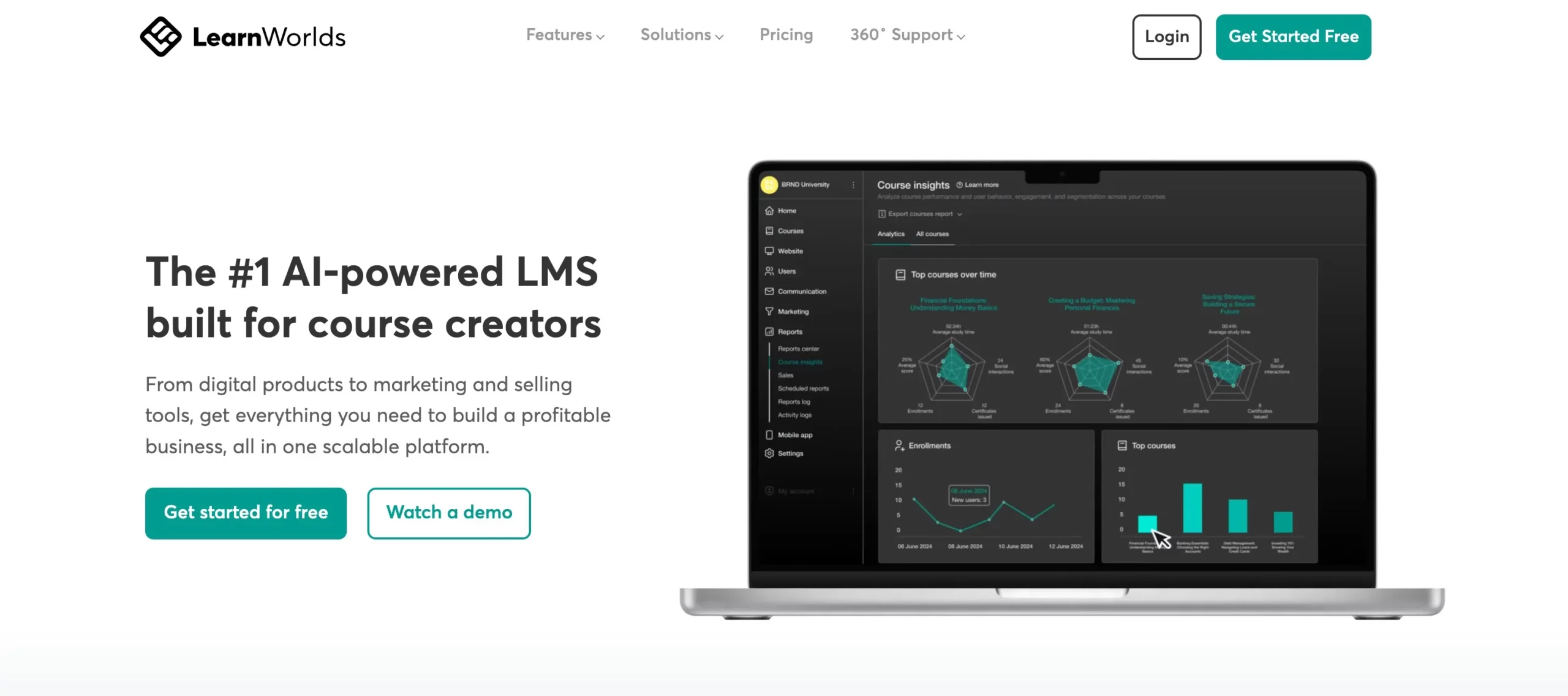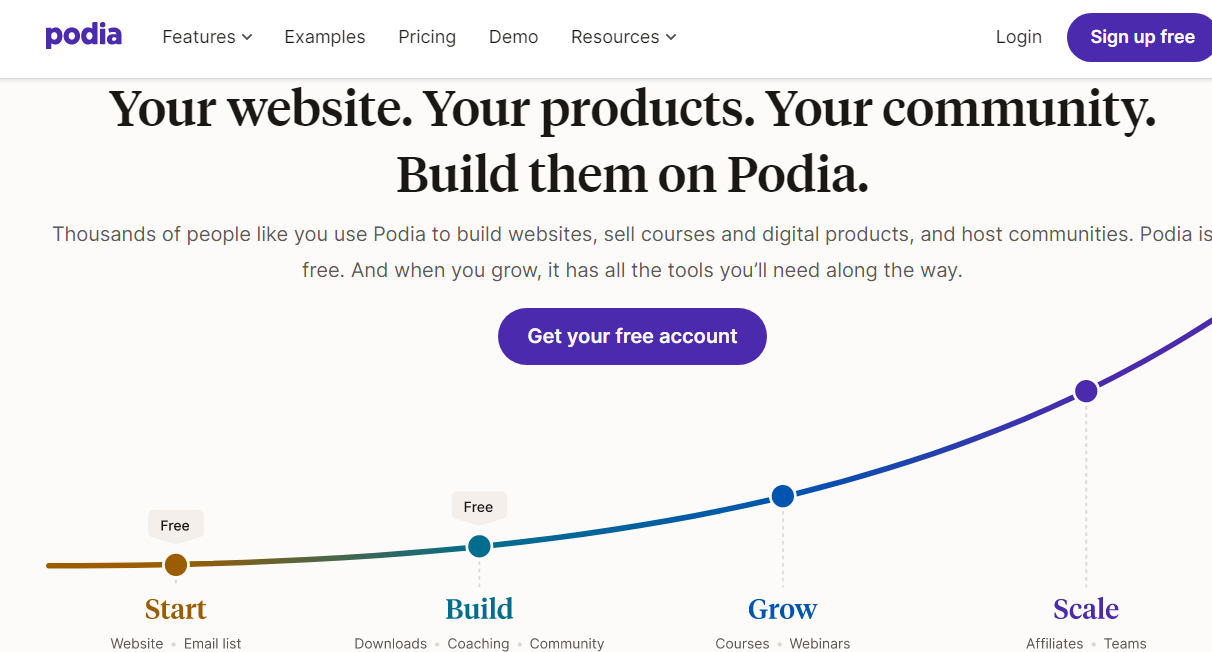Online teaching is growing massively, with so many professionals creating their courses online to open up multiple opportunities for themselves.
Because of all these wonderful online course creation platforms, sharing your knowledge or expertise has become so convenient today.
The biggest reason many people are creating online courses nowadays is that the industry is growing very fast.
To state facts, the education industry has witnessed significant developments and investments in the past few years and has massive plans for the future as well.
The e-learning market is one of the most profitable industries across the globe, and it is estimated to reach a phenomenal valuation of greater heights each year, providing you with another significant reason for creating an online course.
This is a very powerful and genuine way of marketing your expertise.
So, if you are a blogger, instructor, teacher, or creator of online courses looking for a platform to host, promote, and sell your online courses, then you have come to the right place.
Great! Now that we know creating an online course is a decent idea let’s focus on the platforms that can help you build and sell it.
In this article, I will be sharing with you all the best places to host and sell your online training courses.
I have prepared a list of the best course builder platforms out there, which will help you evaluate and analyze them to find out which is best for online teaching and selling online courses for you.
TOC:
- What Can You Seek in an Online Course Builder Platform?
- Course Creation Platforms To Create and Sell Online Courses
- Conclusion
Course Creation Platforms to Create & Sell Online Courses:
1. Teachable (Web, iOS)
Teachable offers various options to customize your course. It allows you to create and upload pre-recorded course content, manage students, and launch a customized course platform.
You can build a website that best reflects you or your business and create sales pages for launching your course. And well, just in case you know programming, you can do so, too, by using the Power Editor option available on Teachable.
On Teachable, you can offer courses in bundles or own your own and choose between a one-time fee, a payment plan, or a subscription. You can also simply add affiliates under their build-in affiliates program, where they will get a percentage of course sales.
But I think Teachable can be costly for a few people. It can work for you if you are flexible with your funds, but if you have a tight budget, you may want to reconsider your options.
Teachable is mostly considered to be suitable for businesses that want to run an online school and have a set budget allocated to the course platform. Creators on Teachable need to integrate multiple services to make their offerings more learner-centric.
A few important features, like the integration process and the cost of bearing third-party services, are something that the platform can work towards.
Most importantly, Teachable supports only one currency option. It works well mostly, but if you have a global audience base, having a country-specific pricing option would be more favourable.
(Keep reading to look out for the best one)
2. Thinkific (Web)
When considering creating an online course, one of the most daunting aspects is determining the number of lessons to include and the types of file formats to use to maintain engaging audio-video content rather than just textual content.
If you are grappling with these concerns, Thinkific offers easy-to-use templates that can alleviate the guesswork associated with course creation.
Unlike other course builders, Thinkific doesn’t require starting from scratch. It provides helpful cues and tips for creating a valuable course, and its website builder is remarkably user-friendly.
In today’s digital age, confining your business to just websites can limit its growth potential.
As people increasingly use mobile phones and tablets for various activities, having a mobile app can streamline the platform’s functionality.
Thinkific offers a range of plans, but you may also need to invest in a premium Zoom license or a Zapier subscription.
It’s worth considering whether it’s worthwhile to pay extra for access to features that other platforms offer for free with their cheaper plans.
Without Zoom integration and lacking direct third-party integrations, it could become challenging to integrate everything, especially if you’re new to creating an online course.
3. Kajabi (Web, iOS, Android)
Allow me a minute to make you think a little. You have built up your course online with perfection, but it is still incomplete if no one knows about it.
You can not just have a “build it, and they will come” mindset for your online business. It is very important to bridge the gap between the creator and the users, and this is exactly where marketing comes into the picture.
With Kajabi, a marketing blueprint called Pipeline, you can design a complete marketing funnel, including opt-in landing pages, email opt-ins, and course checkouts. With just a few clicks, you can have all the marketing superpowers. Kajabi templates can be handy, too.
Kajabi undoubtedly has marketing superpowers. However, for new creators and business institutions with allocated capital, it can be costly.
However, it also happens that these creators don’t mind investing funds into marketing and advertising their online course availability.
Kajabi’s basic plan starts at ₹10,500/—per month, which allows you to enrol only 1,000 active learners. You need to pay an additional ₹17,500/—to upgrade your plan and get it white-labeled.
If you are a creator with a vision to expand your online course over time, you may want to reconsider the basic plan at Kajabi and go for higher plans that will provide you more freedom to work your way out on the platform.
But if you are tight on your budget, you can look into other options that will allow you to do the same work at a much more reasonable price.
4. LearnWorlds (Web, Android, iOS)
LearnWorlds enables connections between students and teachers by emphasizing online community learning.
It helps you set up an online website with multiple instructors and a course catalogue.
It’s almost like a school setup. But don’t worry—you will remain the admin of your course. Instructors can author courses, but they cannot publish a new course or change general settings.
As the administrator of your school, you are free to offer as many courses as you like, with various pricing options.
LearnWorlds’ communities are believed to be well-designed for social interaction. For an added fee, you can also get a branded app for your school.
Real-time interactions are considered to be most fruitful for any online business, especially for e-learning businesses.
But is it well designed for social interaction if you can’t record your live classes?
Along with some great features provided by LearnWorlds, there are a few that the platform misses out on.
Having an in-built live class scheduling feature, Zoom integration, or third-party integrations to teach live may create an issue for creators who want to integrate Zoom live lectures into their online courses.
5. Podia (Web)
At Podia, you can create an online course and publish it immediately or pre-launch it to collect emails.
Podia is a rich platform that lets you create online courses, digital downloads, and even membership sites, all as part of their one digital storefront.
Podia also allows you to create your private membership site with different membership plans, perks, and content for members.
Although it can be expensive, online content creators often like to try to nurture their online community in certain ways. Podia has powerful features to offer.
We are all well aware of the threats platforms like these can be exposed to, which is also why content security is a matter of concern.
If I were a creator online, I would put thought into the security of my content because that is what I will eventually be selling out to the prospectus.
You don’t want to wake up to the nightmare of your content being pirated. It would just mean wasted time, energy, and effort you have invested into building up this business for yourself.
This makes it difficult to earn revenue from, and in the worst-case scenario, it can be a pitfall if this is your primary source of income.
Thus, security measures like dynamic watermarking can be offered by the platform to avoid piracy of the content available. It can also add features like a device-wise limit to stop credentials misuse.
5. Graphy (Web, Android, iOS)
Graphy offers a personalized approach to online courses, making it a great option for online educators and creators, especially those from India.
Graphy is the first-course platform designed for creators who want to monetize their audience. It is an end-to-end platform that helps you grow your audience, monetize your skills, and host cohort-based courses.
The platform allows pre-recorded sessions as well as in-built live sessions with the audience, providing a better experience for both creators and learners.
Learners can access course content and purchase new courses anytime.
The web and mobile apps are highly secure, as they provide white-labelled web services. The mobile apps for iOS and Android are also completely white-labeled.
Graphy ensures content security through multi-layer security with dynamic watermarking and device-wise limits to prevent credentials misuse.
The platform supports international and local payment gateways, such as Razorpay, Paytm, Instamojo, PayUMoney, and TraknPay. It also allows creators to receive international payments.
Graphy offers immediate call support, instant chat, and 24×7 email support. It also provides dedicated account managers to help you succeed.
With $50 million in revenue earned by creators, 5 million users enrolled, and 3000+ success stories, Graphy has made a mark in the industry.
During onboarding, Graphy offers assistance and free customer support to help you transition your existing course. I recommend booking a demo today to unleash your superpower as a creator and online educator.
Quick Links
- Best Tips On How To Start Online Teaching?
- Best Practices of Online Course Selling
- How To Create An Online Course For Free
- Online Courses For Free Certificates
Conclusion: Start Your Online Teaching Journey In 2024
The education industry is currently going through a significant behavioural shift.
Suppose you are a creator or an online educator. In that case, developing your online course provides a great opportunity to utilize platforms like Podia, Kajabi, Thinkific, Graphy, and others to help your audience reach their learning goals.
If you are passionate about sharing your knowledge and want to grow your audience, there are platforms available to help you succeed.
While the ideal online course platform provides you with the tools to create the best course for your business, it requires a lot of work.
However, once you have the right framework, you can set your business up for the best possible start.
Once you have a clear understanding of your target audience, you can choose the right platform that allows you to unleash your potential as an online creator and educator.
You can then invest your time in developing valuable content for your learners, which will add more value to your online community.
I appreciate you taking the time to read this. I hope the information provided has not overwhelmed you.
The valuable insights shared in this article about choosing a user-friendly, clean, and content-focused platform or course builder will help you, as a creator, find the best course creation platform that suits your needs.







